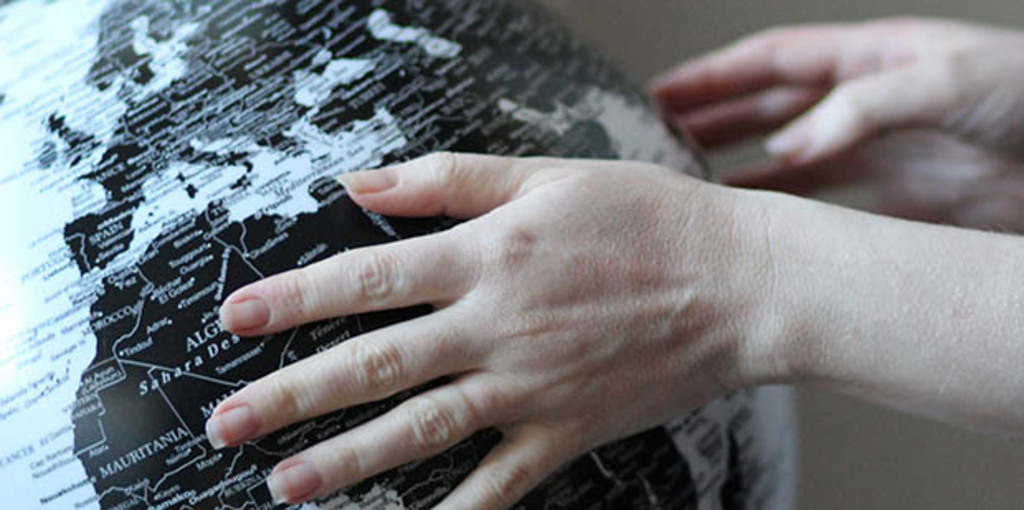Religion – We are all here together

Religion – We are all here together
Every religion appears to have either differences or similarities when it comes to how we are to have a relationship with divinity, God, and the heavens above, that is either included in or excluded from daily human life.
We live with this scale of acceptable behaviours and unacceptable behaviours under the stated canons of whichever religion is most dominant in our lives. And even if we may claim to not have a faith or follow a religion, our lives are still controlled by perceptions of needing to treat others in certain ways that again has a sliding scale of what is ‘good’ or ‘bad’.
What is the impact of the perception that there is a scale in the first place? Because the fact is that we are all on the same platform together. We all live on planet Earth. We are essentially all in the same boat.
All these questions came about as I considered my relationship with others of certain religious faiths. It's as if because they have a certain lifestyle that may differ to mine, that this somehow obscures the fact that we are all equally human beings. And because I have viewed them differently, then there has been little interest in getting to know them as the person that they truly are, as these outer lifestyle choices have been given more focus over and above the essence that remains equal within us all.
This perception is further supported by those who uphold religious separation, be that warring or murder in the name of their religion, or even in the unspoken judgments we may hold towards another. On a wider scale this can be easily seen playing out in the media of today.
For example: in the western world, the media appear to only focus on the violent and extreme actions of a handful of people proclaiming it as the will of God in their version of the Islamic/Muslim faith. This peddles and supports a perception that the actions of a few extremists represent the whole religion and that somehow all those who follow the same faith are to be tarred with the same brush and treated no differently to those who have committed the violent and extreme acts. It breeds the 'us and them' mentality that has occurred throughout the world and throughout history.
As a society, we have lost our ability to discern and have the awareness of the quality of what is expressed. We allow people to use whatever words they want, and we allow them to change the meaning of these words from the original truth they represent.
- Is it possible that by allowing the bastardisation of the truth a word represents, we in fact allow those violent behaviours that arise from such misinterpretations?
- And that this bastardisation of truth in word is what leads to the loss of our one-unified quality?
We group true love and care, so called ‘do-gooding’ and extreme acts of violent behaviour under the one banner and we justify it in the name of ‘love’ or ‘religion’, which has nothing to do with the truth of these words. This creates reaction, confusion and misunderstanding in others outside of this group.
There are those who follow the same faith without these extreme behaviours, who do and can bring true support and love to the world as equally as anyone else. Do we stop and connect to these people for the person, the Son of God they are, and seek to understand what is going on in that religious group, or do we stay away?
In that separation, are we supporting those extremist behaviours to remain by treating a certain group of people differently than us?
If we were to treat an illness or disease in the same way, avoiding it because we don't like how it grows or changes the body, would that support healing or allow it to get worse? So often in medicine we are advised to seek treatment sooner rather than later and yet such a preventative approach has not been adopted when it comes to people.
Do we react to the surface behaviours and words that do not come from this equality – the quality of love – that lives deep within, or can we connect regardless, knowing that that expression of the ‘what is not’ us is simply that – not us.
What could we learn by connecting to a person’s essence within the human frame, regardless of how and what we choose to adorn it with or shape it as via our lifestyle choices?
Could it be that true religion is about re-connecting to a oneness that is within us all and that reawakening our ability to feel and read energy, and thus discern the truth of word and action, is a way of re-introducing into life all the teachings that the previous world teachers have shared with humanity? That we are all originally one and the same, all of us equally able to be and live the love that we are?
Filed under



 PRINT PAGE
PRINT PAGE


